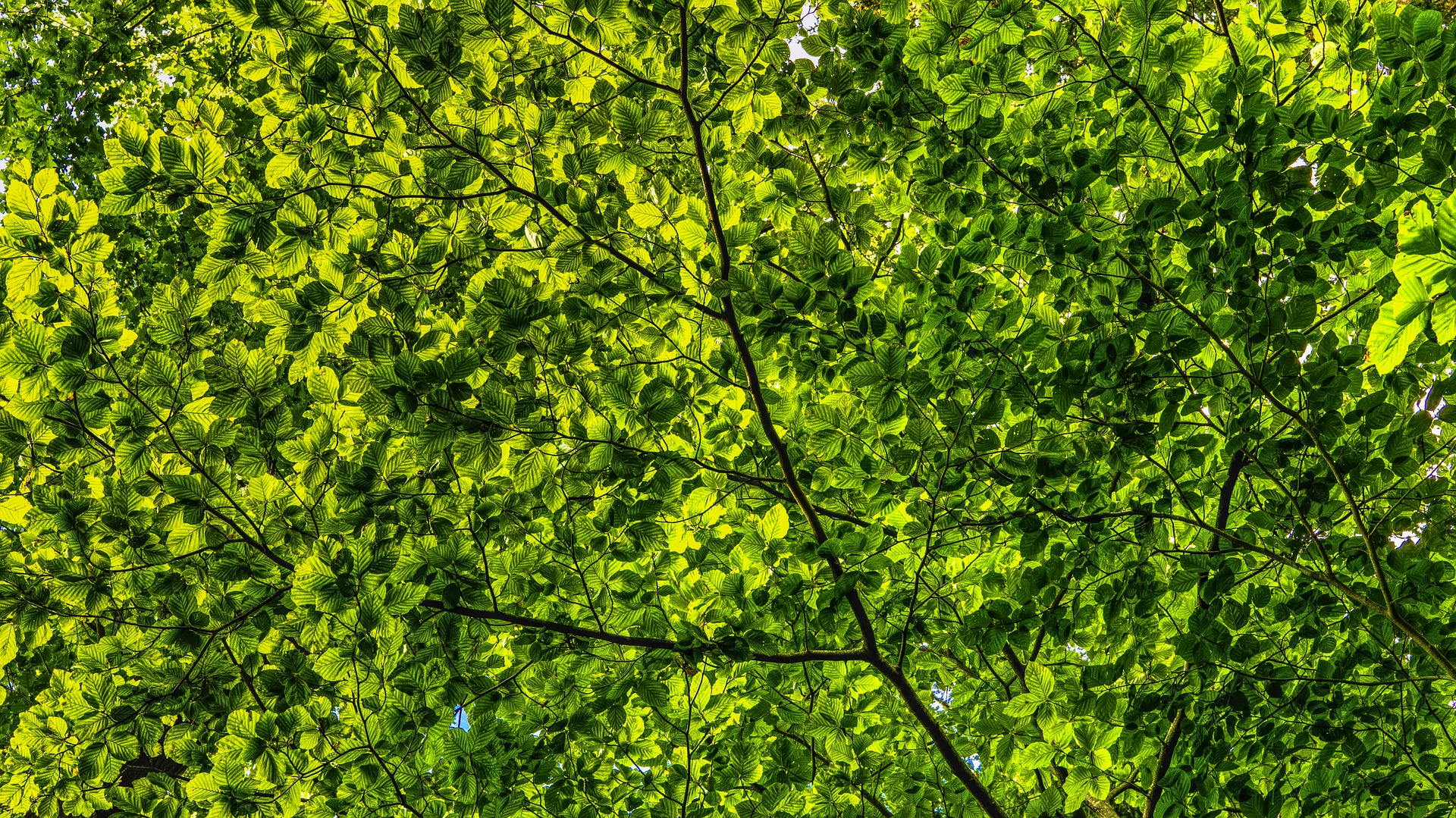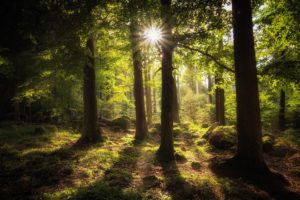
The Healing Wonders of Forest Bathing
There is something glorious about wandering deep into the forest; like magic, it transports you from the stress of daily life into a strange, pleasant calm. Towering woods welcome you into their solemn space. The atmosphere changes. You’re breathing new, clean air; freshly dabbed with the fragrant musk of the earth. You notice the little things; the quaint mushroom formation by the roots, the leaves that fell on the ground, the sound of birds fluttering from above. The rays of the sun slowly peek from the high-topped canopies. It’s refreshing, heartwarming and whimsical; like you have been cleansed anew, and you walk out of the forest rejuvenated from the inside out, and you’re surprised why.
This is Forest Bathing. No soap, no water, no bath oils or shampoo required. A trip to the forest cleanses you emotionally and – surprisingly – physically, simply by immersing in the woodlands’ atmosphere.

In Japan, they call this shinrin-yoku, the habit of taking short, leisurely trips to the forest and reap a plethora of health benefits. The origins of this practice can be traced back in the 1980s, where the term was first coined by the Japanese Ministry of Agriculture, Forestry and Fisheries, who promoted this routine for healthier working adults. Nearby countries followed suit; the Chinese called it senlinyu and the Koreans, sanlimyok.
The healing power of forest bathing is more than the change of atmosphere; scientifically, it could be credited to the inhaling of phytoncides – wood essential oils which are classified as volatile organic substances. A common example is limonene, a chemical compound present in citrus fruits, beneficial for clearing skin, boosting the immune system and relieving anxiety. Another is cedrol, a compound that occurs in cedar extract, which helps decrease diastolic pressure and aid in respiratory functions. Published in 2006, a study called “Immunopharmacol Immunotoxicol” was made to prove that wood essential oils can induce human natural killer (NK) cell activity. These NK cells seek out and destroy cancer-causing elements in the body; selectively targeting viral infections without destroying the entire cell.
In this study, a field test involving healthy male workers in a 3-day stay in the forest revealed a significant increase in their NK rate. Consequently, the effect of the forest environment on the NK activity lasted more than 7 days after the trip. An identical study was done in female subjects which yielded the same result.
Stimulation of the senses within an environmental setting also induces a positive physiological response. Yuko Tsunetusgu, Yoshifumi Miyazaki, and Bum-Jin Park authored a 2004 study called “Therapeutic Effects of Forests,” focusing on how natural environments affected one’s sense of sight, smell, sound and touch. Subjects were immersed in visual, auditory, olfactory and tactile experiments; all of which were made to measure heart rate, blood pressure, and other biomarkers.
One significant result is that cortisol, a hormone generated as the body’s response to stress, is lower in subjects exposed to forest bathing compared to those in urban environments. There were also positive changes in absolute hemoglobin count, pulse rate, and systolic blood pressure.

A walk in the forest is like a walk in the park but healthier. Hospitals have found this method useful that they have allotted landscaped grounds for their patients, allowing them to stroll during the day, or for them to take a glimpse from their hospital bed.
As the grass crunch underneath your soles, as you study the different scents coming from the barks, nature itself heals you. Forest bathing is a pleasant recreation that can be an inexpensive cure for stress and other bodily ailments. Some of its benefits include:
- Less risk of heart attack. Multiple studies have demonstrated this practice to significantly induce the body’s adiponectin – an anti-inflammatory hormone that reduces high blood pressure. This also helps lower glucose levels, as adiponectin is also potent in regulating insulin in the body and subsequently balances glucose and fats.
- Stronger respiratory system. With trees converting carbon dioxide into fresh oxygen for you to breathe, a trip in the forest can do wonders for your lungs. Paired with the beneficial fragrant compounds, the fresh, crisp air can do wonders for people with breathing problems and chronic lung diseases.
- Increased daytime energy. The light from the morning sun offers many benefits, and one of them is to signal the body to stay awake, far better than a cup of coffee. Forest bathing regulates the body’s activity cycle, calming it by reducing dopamine, which then helps you to gain better sleep at night.
- Improved moods. The fresh air, the green grass, the tranquil sounds of the stream; all these experiences wash away those toxic emotions and leave you feeling refreshed.
- Sooth sore muscles and organs. A hike to a conifer forest exposes you to terpene compounds, which are known to offer relief from arthritis and joint pains. A variety of terpenes are also known to be effective against inflammation in vital organs; borneol protects the nervous system against degenerative brain diseases. D-limonene wards off tumor cells.
There are no rules to forest bathing; the aim of this concept is to take a break from your regular routine as you immerse into a natural environment. Notice the foliage. Meditate. Even gathering forest sundries can become a pleasurable experience. Take a trip every week or two; the frequency of your forest baths is substantial to your physical and emotional wellness. As life moves at a faster pace and modern conveniences hitch you indoors, take this time to unclasp from the norms and rediscover the earth’s best gifts. Benefit from what the earth freely gives – its indescribable wealth is yours for the taking, unrestricted and abundant.
While you breathe in that crisp air, while you trudge deep into the marvel of the woods, it is only fitting to give back in return. In the empty spaces of the forest, where stumps are left after serving its duty, touch the ground, till a hole and plant a new seed. In that place, a new tree will blossom in many years’ time, so that forest bathing can be enjoyed by the generations to come.



